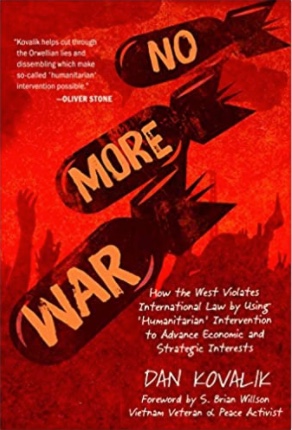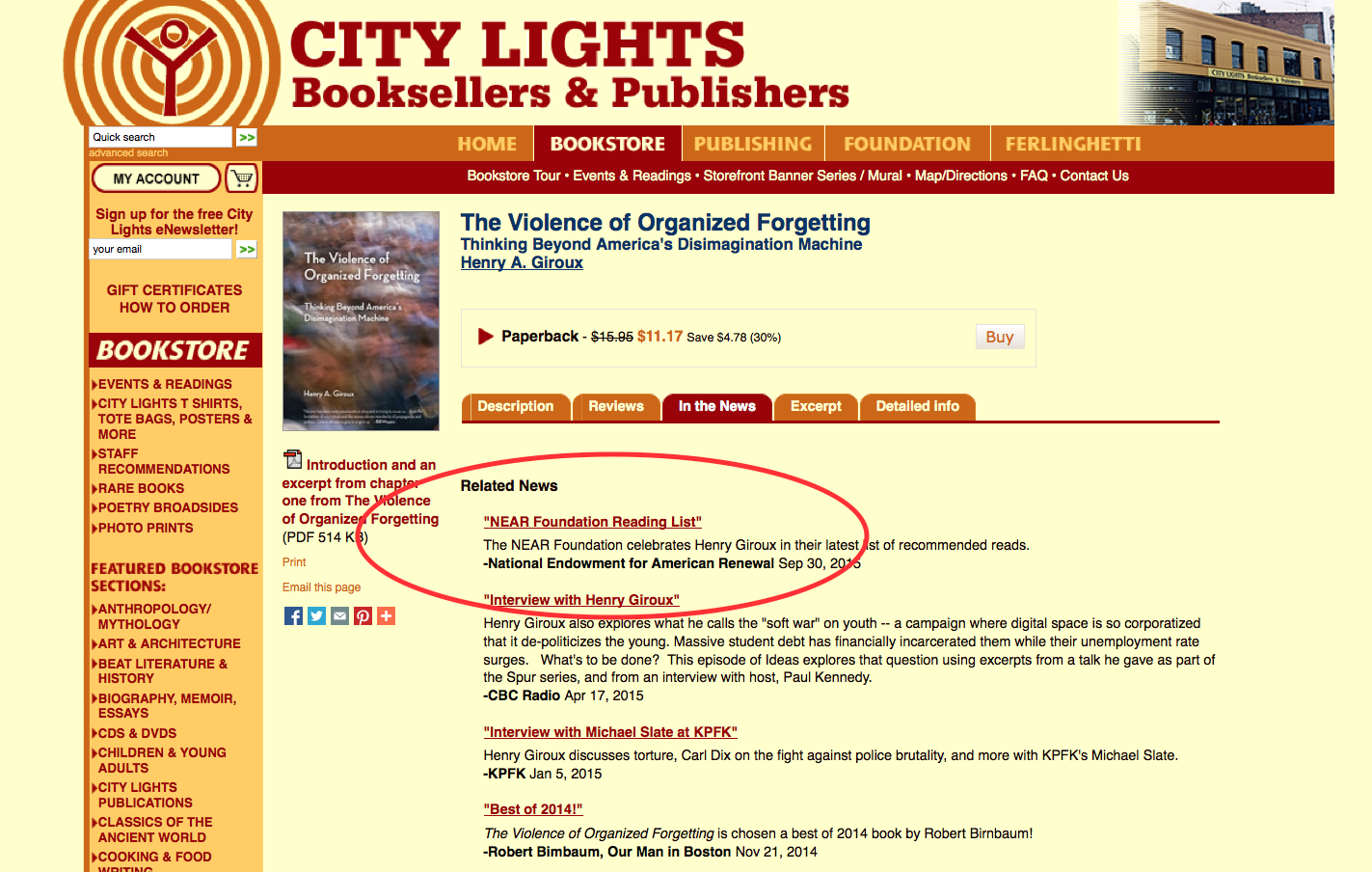
In an era where a man like Julian Assange can be mercilessly persecuted for just doing honest journalism, it takes a great deal of courage to expose the lies and misdeeds of America’s imperial ambitions. Yet they must be exposed and condemned for exactly what they have been and continue to be. No More War: How the West Violates International Law by Using ‘Humanitarian’ Intervention to Advance Economic and Strategic Interests is a book that goes the extra mile in doing just that.
As with all of his excellent books, Dan Kovalik has packed this readable and well-researched work with an abundance of invaluable information and insight into the imperial war machine, the imperial diplomatic and PR juggernaut, the extensive predatory machinations reducing the rest of the world to rubble so that America’s corporations and its ravenous banking system can subjugate and exploit their populations and extract their material wealth.
We citizens, under the spell of the Western propaganda machine, slog through the malaise of censored news, disinformation and deceptions with our eyes wide shut, preferring to avoid at all costs acknowledging the nefarious role our “exceptional” nation plays in perpetrating some of the most sordid war crimes in history, thereby propagating unfathomable misery across the planet.
Though we might prefer to immerse ourselves in the bliss of this willful ignorance, as the folks who fund such misadventures with our tax dollars, and who implicitly support it by raising no serious objections, much less mounting actual resistance, we are ourselves responsible. We are culpable. We share the guilt of those actively engineering and promoting this tsunami of death and destruction, a reign of terror inflicted on any nation who would dare stand in our path of full-spectrum dominance and self-serving plunder.
How is it “we the people” are rendered so indifferent to these acts of aggression?
Not an excuse, but an incriminating explanation, provides the required insight: We are told — and gullibly believe — that somehow this orgy of violence, the bloodbaths and rubble which result from our military interventions, are in pursuit of a better world, one where democracy and freedom and justice for all reigns supreme. That it is the U.S.’s responsibility to stand up for and protect the citizens of other nations who are being deprived of the rights and privileges due to all of us as humans.
But as Kovalik proves beyond any doubt, for seven decades, our wars of aggression and fostering regime change around the globe have had nothing to do with the tragically laughable “cover story” that the U.S. is spreading democracy and protecting human rights, but rather are the direct, predictable, and inevitable product of America’s obsessive fixation on world conquest and unchallengeable global domination.
No More War covers a lot of ground, looking in detail at Congo, Rwanda, Uganda, Afghanistan, Syria, Libya, Bolivia, Venezuela, Cuba, Nicaragua, the NATO aggression against former Yugoslavia, the Vietnam War. We see 1) how disruptive and counterproductive U.S. meddling in such countries is, 2) how such interference in the affairs of sovereign nations contravenes both currently accepted norms and international law, 3) how this abuse of military prowess is rapidly overextending U.S. projection of power, 4) how it is making America a pariah in the world community, and 5) how this will ultimately result in a major confrontation with countries like Russia and China, two nuclear-armed nations which genuinely have assumed the higher moral ground in the world of geopolitics. Dan Kovalik also eloquently exposes the profound hypocrisy of the U.S. claiming to be standing up for human and political rights in other countries, as it ignores and violates within its own borders many of those same rights for its own citizens.
No More War is a powerful, informative book. While the well-crafted prose reads comfortably, conferring it with NYT best seller potential, its erudition demands that it be taken seriously. This invaluable volume begs to be used as a textbook for university peace study courses. For we can’t very well chart the right course without fully understanding where we’ve gone wrong . . . so very very wrong.



